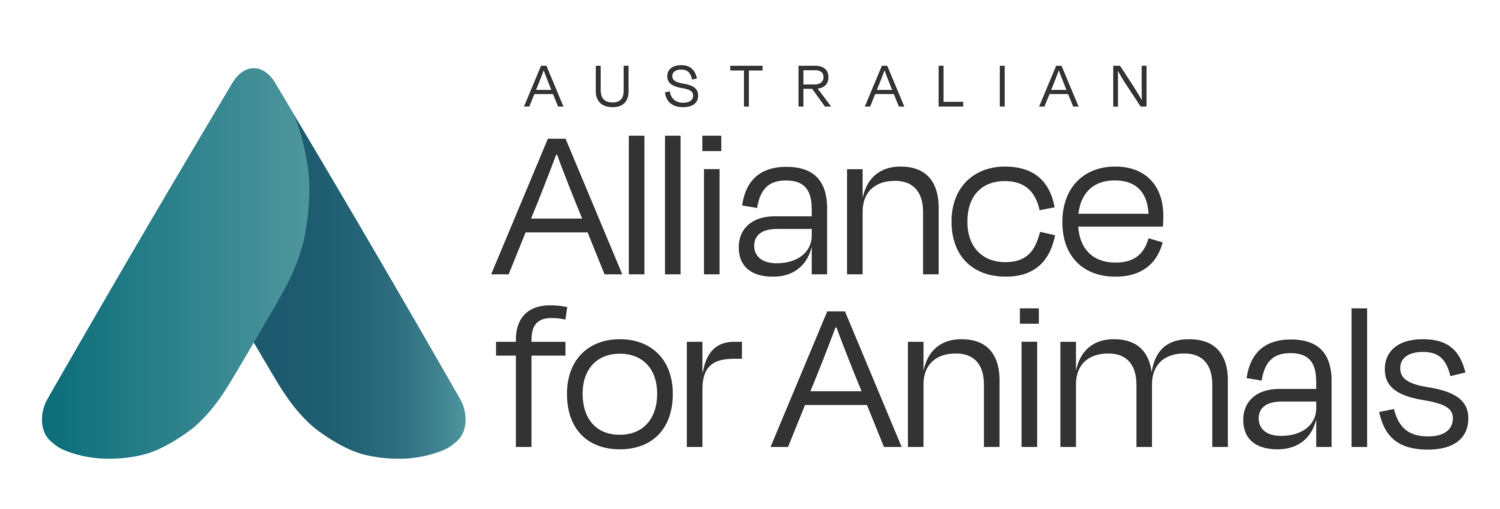The power of political advocacy: A path to a fairer Australia for animals
In Australia, animals hold a significant place in our lives. From beloved pets and farmed animals to iconic wildlife, they play an integral role in our society. Yet, the systems designed to protect their welfare fall short, leaving millions of animals vulnerable to the demands of the very industries that are based on exploiting them. Political advocacy provides a critical pathway to addressing the systemic shortcomings, enabling us to create meaningful and lasting change for animals.
The current system prioritises profits over welfare.
Despite 94% of Australians caring about animals and supporting the call for stronger laws, our system continues to fail them. This is particularly evident for farmed animals, where the laws, standards, and policies favour profit and productivity over their welfare and sentience. There are four core reasons why this occurs:
Conflicts of interest for those in power: Animal welfare is often overseen by agriculture ministers and departments, who are primarily tasked with promoting industry growth, and as a result, can be resistant to pursuing higher welfare standards if it will affect economic goals.
Industry interests dominate decisions: Industry stakeholders are prioritised during departmental standard setting processes. Industry also provides funding for research that is used to influence decision-making.
Inadequate consideration of science and public expectations: Under the law, decision-makers do not have to reflect contemporary science or community views in policies and standards.
Animal sentience isn't recognised: The system does not recognise animals as sentient beings and does not require standards to provide for their welfare needs.
These reasons are why hens are still trapped in battery cages, pigs are still confined to sow stalls and farrowing crates, and lambs are still subjected to live lamb cutting, despite scientific evidence of suffering and public opposition.
Political advocacy challenges systemic issues, influencing change.
Political advocacy for animals is about creating or supporting an issue and can be directed at a local, state, or federal level. It works to challenge systemic issues and influence governance structures and policies. The Fair Go for Animals campaign is designed to do just that. The six-point reform framework provides a pathway to rebuild the structures, policies, and practices, to create a fairer and more independent system for animals.
How will the Fair Go for Animals reforms achieve this?
Create Ministers for Animal Welfare to remove conflicts of interest
Establish a National Animal Welfare Commission to make the system truly independent
Create state Animal Welfare Authorities to ensure the interests of animals are upheld under law
Introduce guiding decision-making principles into animal welfare legislation, and recognise animals as sentient beings with intrinsic value
Create fair and accountable animal welfare standards and decision-making processes
Allocate proper funding for animal welfare services in line with community expectations.
Together, we can build a fairer future for animals
Achieving political change requires a coordinated approach that includes lobbying politicians, leveraging evidence-based arguments, and gaining public support. This means individuals like you play a vital role in increasing pressure on the government to take action and implement change. Here are a few ways you can help:
Endorse the Fair Go for Animals campaign
By endorsing the campaign, you are showing decision-makers that Australians expect higher welfare for animals and want a stronger governance system.
Engage with political decision-makers
Whether you write an email, organise a meeting, or have a phone call, engaging with politicians is a powerful way to create change. To help you get started, we've created a political toolkit to provide you with a step-by-step guide for having effective engagement with MPs.
Join the Alliance for Animals
By signing up to the Alliance’s mailing list, you will be notified of political engagement opportunities and important campaign updates to help build a fairer future for animals.


